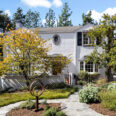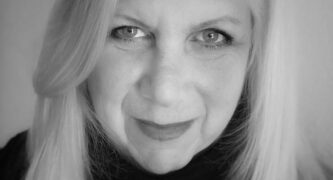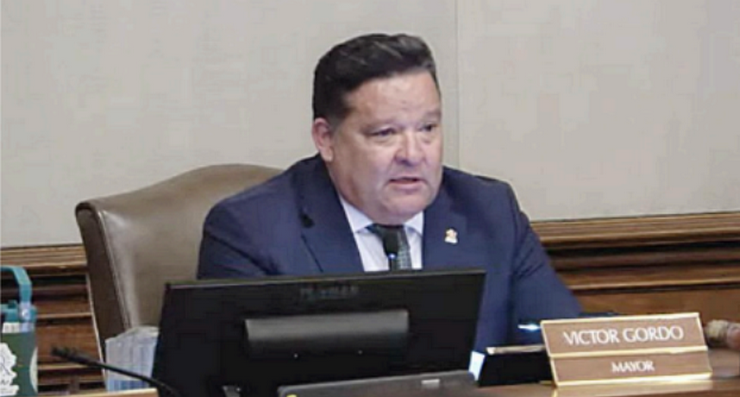
Since I was a teenager—and at times homeless—I learned early that the ability to sleep safely, even without a home, is essential for human survival. It is the fragile line between moving toward the American Dream and falling into despair. I worked my way through school, juggling multiple jobs.
But even then, I survived by sleeping in the old Chevy Nova my grandfather left me. I often parked at a 24-hour Ralph’s because it offered what every human being needs at night: lights, bathrooms, food, and the comfort of not being entirely alone. A kind security guard turned a blind eye.
I slept as safely as one can in a car until financial aid allowed me to move into a dorm. That experience—combined with both trauma and resilience—shaped my life as a planner, educator, and advocate.
It taught me that a just city must center on dignity, safety, and compassion, especially for people who cannot or simply do not show up at public hearings. It also taught me that good urban planning depends on adherence to the law, the evidence, and the public trust. So as the Safe Parking Program at All Saints Church came before the city this year, I watched closely as some neighbors appealed without any compassion for a very serious social issue and not understanding the consequences. And I asked myself a painful question: What would motivate local leaders to vote against ensuring that unhoused residents can sleep safely—even when sleeping in their car is the only option?
A Program That Meets the Need—and the Law
The Safe Parking Program at All Saints is simple: a secure, overnight place where people living in their cars—mostly older adults, working residents, women, fire survivors, and students—can sleep without fear. It operates from 7 p.m. to 7 a.m., allows at most 25 cars in the Church’s lot with space for 109, requires registration, enforces behavioral rules, and includes on-site security and case management to help people transition to stable housing. Pasadena already approved a similar program at Trinity Lutheran, which has operated for years without issue. City staff, the Hearing Officer, and my colleagues—all five members of the Board of Zoning Appeals (also Planning Commissioners)—approved the program and agreed it met two exemptions under the California Environmental Quality Act (CEQA). Both relate to the operation of existing facilities and small, temporary structures—neither of which create unusual or significant physical environmental impacts. Parking a car unattended in an existing lot is no different to the environment than one with someone inside. CEQA only reviews environmental effects such as pollution, destruction of habitat, or harm to historic resources. It does not consider social concerns or fears about unhoused people or an increase in homelessness.
But the most important fact is this: as of January 1, 2025, the Safe Parking Program could be statutorily exempt from CEQA under Senate Bill 1361, passed unanimously by the State Senate and Assembly and signed by the Governor. Existing law had already exempted services for ending homelessness undertaken directly by local governments; SB 1361 extends the CEQA exemption to contracted services operated on the government’s behalf. The intent of the new law is to prevent CEQA from being weaponized to delay services meant to protect people experiencing homelessness. It was designed precisely for situations like this. On April 15, 2024, the Council had already authorized a contract to be managed by the City’s Housing Department with The Showers of Hope to operate the All Saints’ program, which is protected by that very law.
A Minority Vote Stopped the Program
At the November 17 City Council appeal hearing on CEQA grounds, four councilmembers—Jess Rivas, Rick Cole, Jason Lyons and Gene Masuda—affirmed staff’s environmental determination. Three members—Mayor Victor Gordo and Councilmembers Justin Jones and Tyron Hampton—voted against it.
Because Pasadena’s charter requires five affirmative votes for approval (Steve Madison was absent), the Safe Parking Program was halted by a minority—even though a majority of the Council supported it. Those same three also voted against continuing the hearing to a date when the full Council could be present.
The result is that a legally compliant, urgently needed program—already funded, vetted, and approved—was left in limbo because of a CEQA action that state law could now prohibit (see CA Public Resources Code Section 21080.10).
The Human Cost of Delay
The consequences are not abstract. Tonight, people will sleep in their cars in Pasadena. Some are in their seventies. Some work full-time. Some have children. Some are students like I once was. Some are simply trying to survive until they can afford a room or receive a voucher. Safe Parking does not create homelessness; it simply acknowledges reality. And it provides safety, stability, and a pathway out—not a permanent condition. Our City has already declared that Safe Parking aligns with our Housing Element, our Zoning Code, and our values. We cannot allow fear, misinformation, or procedural maneuvers to override compassion and the law.
A Call for Civic Engagement—and for the Council to Reconsider
Pasadena residents deserve a process grounded in facts, transparency, and humanity. The Council’s vote on November 17 did not meet that standard and the omission of SB 1361 from the Staff Report deprived the public and the Council of critical information.
The Council should reopen and reconsider the matter, correct the record, and align its actions with both state law and Pasadena’s stated goals. A responsible city does not leave its own residents unsafe when a lawful, vetted, and compassionate solution is already in hand. And residents can help. I urge Pasadena community members—especially those who believe in fairness, dignity, and evidence-based decision making—to make their voices heard. Speak at Council. Write. Show that this city stands for compassion over fear and for process over dirty politics. For people sleeping in their cars tonight, a safe parking space is the difference between danger and rest, between despair and possibility. Pasadena can choose to be the city that gives them that chance.
Dr. Julianna Delgado is a Fellow of the American Institute of Certified Planners (FAICP), President of the Southern California Planning Congress, and Professor of Urban and Regional Planning. She is a Pasadena resident, chairs the City’s Design Commission, and also serves on its Planning Commission and Board of Zoning Appeals (BZA).



















